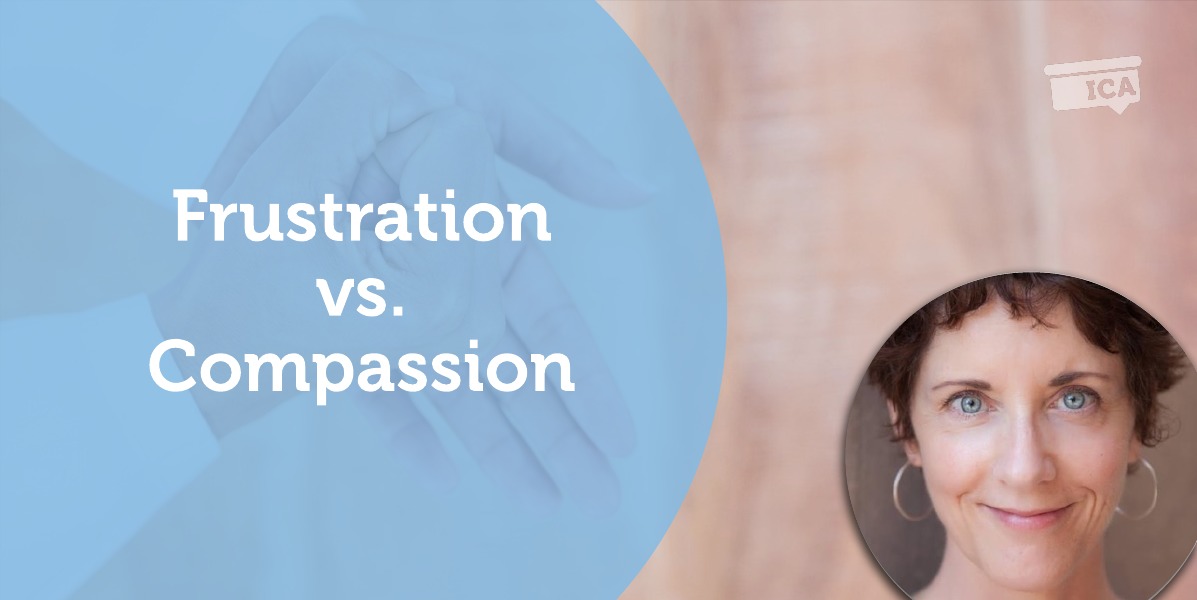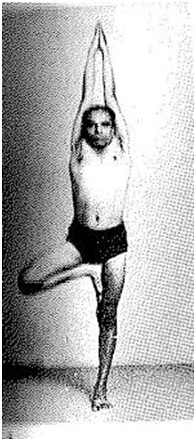 A Coaching Power Tool Created by Mimm Patterson
A Coaching Power Tool Created by Mimm Patterson
(Life Coach, UNITED STATES)
Frustration vs Compassion (Contraction vs Expansion)
I see it happen when I’m teaching yoga. As I’m guiding students into Vrkasana – tree pose. There are days when the task of standing on the right leg with the sole of the left foot pressed against the right leg’s inner thigh feels natural. It flows. You feel anchored, calm, and in the moment. Present. Then there are those days.
Those are the days that no matter what you do, tree pose isn’t going to happen. You lean into the effort and yet your equilibrium falters. You sigh. The foot comes down and you try again, this time muttering to yourself, “I did this pose perfectly yesterday.” You decide to lock your standing leg knee – but the more hard-edged your body becomes the more difficult it is to remain grounded and the louder the voice in your head judges. Frustration takes over. Balance is lost.
The same scenario plays out as we study ICA’s coaching curriculum. There are days when thirty minutes as a peer coach flies by in a moment and we’re amazed at how much technology we’ve learned. We’re present, in the flow, and ‘dancing’ with our coachee. Our questions are on point, our timing perfect. The coaching agreement and action plan come together with ease and the session closes on a high. And then there are those days.
 Those are the days when the coaching agreement is a foggy mess and our questions are rambling, stacked, and closed. Or maybe we fall into the coachee’s story. We lose our way and our equilibrium. We panic, overcompensate and begin to lead the coachee toward an outcome that is less than ideal. Frustration takes over. Balance is lost.
Those are the days when the coaching agreement is a foggy mess and our questions are rambling, stacked, and closed. Or maybe we fall into the coachee’s story. We lose our way and our equilibrium. We panic, overcompensate and begin to lead the coachee toward an outcome that is less than ideal. Frustration takes over. Balance is lost.
Frustration is an irritating response to circumstances that contributes to the loss of physical and energetic balance. Our instinct, when we are frustrated, is to contract. We ‘harden our edges’. In tree pose, this means we might clench our teeth and tighten our shoulders. As coaches, when we are frustrated, we have a similar reaction. In both cases, the reaction is not limited to the physical. When tree pose falters or when a coaching session becomes difficult we have an energetic shift towards self-blame. The doubt we feel is a distraction. In a yoga class, we fall out of the pose. In a coaching situation, we begin to listen more to our monkey-mind’s negative chatter than we do to our client.
When I see my students struggling in tree pose I remind them to ‘soften their hard edges. I ask them to breathe and to allow tree pose to happen in the space of whatever energy they brought into the practice studio that day rather than trying to fit their bodies into their expectations of what they believe tree pose should be.
When students can hear these instructions – when they can soften their bodies and their minds – they unlock contraction and begin to expand into the pose. Their face softens, their breath is easy. They release self-blame and replace it with self-compassion.
As coaches on the first steps of our journey, we can also meet the frustration we experience in a coaching session with self-compassion. Rather than trying to fit our coaching into the high expectations, we have set for ourselves a better approach may be to start where we are and to embrace the unique energy that both coach and coachee bring to each session.
With each peer coaching session, with each module we study, our proficiency increases and the skills necessary to be an effective coach become more a part of us. The ICF competencies begin to feel less like statutes separate from us and more like ideas embedded within us.
Letting go of frustration and approaching our learning journey with a compassionate heart supports this process.
Applying Frustration vs Compassion to a Coaching Situation:
Once we learn to release frustration and begin to build a personal practice of self-compassion, our coaching will come from a place of compassion. To coach with compassion means entering the coaching agreement with empathy and an awareness of our coachee’s need.
Coaching from a place of compassion means trusting our interoceptive awareness skills – in other words, trusting what our instincts are telling us about our coachee’s emotional state and the best path forward. Coaching from a place of compassion means we support our coachee as they move from a place of unknowing to one of well-being. Through questioning, we help our coachee discover their capacity for self-compassion. As that happens the hard edges soften and they become grounded and firmly rooted again. Just like a tree.